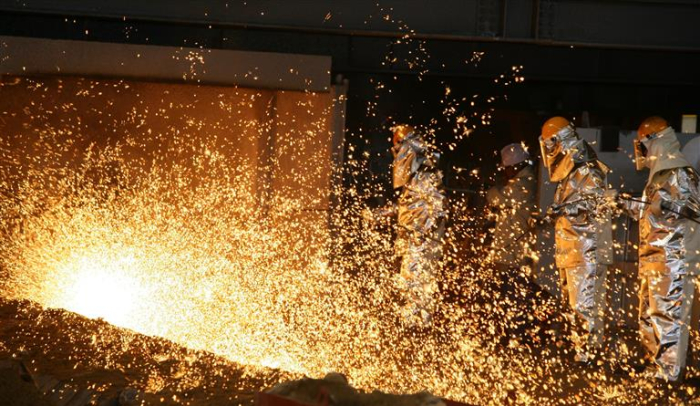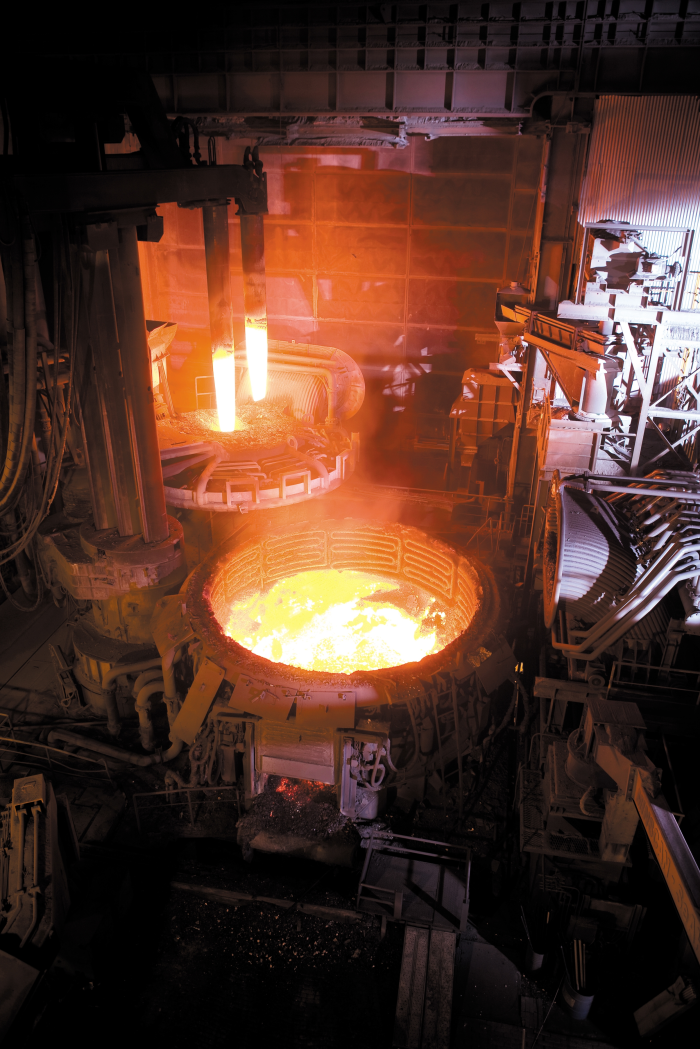Scrap metal scarcity
Steel scrap in high demand on steelmakers' emissions-cut efforts
Steel scrap prices climb to 13-year highs, with demand seen on an upward trend
By Nov 07, 2021 (Gmt+09:00)
3
Min read
Most Read
Samsung shifts to emergency mode with 6-day work week for executives


CJ CheilJedang to sell feed, livestock unit for $1.4 bn


Samsung Electronics' key M&A man returns; big deals in the offing


Affinity to buy SK Rent-a-Car at $572 mn, more deals expected


Keppel REIT to sell Seoul-based prime office T Tower



The soaring demand is pushing ferrous scrap prices to 13-year highs as scrap metal exporting countries have implemented measures to limit exports, including imposing export taxes.
Skyrocketing prices notwithstanding, demand looks set to rise further as governments are pushing manufacturers alongside their ambitious emissions-reduction goals. Industry watchers warn of a steel scrap crisis should additional government measures be put into place to curb exports.
South Korean steelmakers, led by POSCO Co., Hyundai Steel Co. and DongKuk Steel Mill Co., are now scrambling to secure steel scrap from Japan, Russia and the US, according to steel industry sources on Nov. 5.
Driven by the demand, the prices of scrap metal imported from Japan are coming close to ┬ź70,000 ($615) a ton on average. The average price of heavy melting scrap A, regarded as a benchmark indicator, climbed to 605,000 won ($510) in the first week of November, a surge of 94% year to date.
It was the first time for the metal scrap price to surpass the 600,000 won mark since 2008. In October alone, the recyclable steel price jumped 14%. Scrap steel is used alongside coke from coal at electric furnaces to produce steel.
UPWARD SPIRAL
South Korea is 85% self-sufficient in steel scrap, importing 4 million to 6 million tons of metal scrap annually from the likes of Russia, Japan and the US.
The consensus view in the industry is that the recyclable steel price is expected to rise further to surpass 670,000 won, since governments are accelerating policy efforts to achieve zero-emissions goals.
As the steelmaking process is blamed as a primary cause of air pollution, global steelmakers, including Nippon Steel Corp. and ArcelorMittal S.A., have expanded their capacity of electric furnaces that use metal scrap to produce steel, lowering their reliance on iron ore.
For POSCO, the country's No.1 steelmaker, recyclable steel accounted for 20% of the raw materials used in its furnaces this year, versus the previous year's 15%. It plans to increase the proportion to 30% by 2025.┬Ā
LIMITED SUPPLY, RIPPLE EFFECTS┬Ā
But supply is not sufficient to meet the rising demand. Steel scrap is extracted from waste home appliances and scrapped cars and building materials.
The Eurasian Economic Commission, led by Russia, has been considering implementing a ban on ferrous scrap exports since last June, when it raised the export duty on steel scrap to Ōé¼70 per ton from Ōé¼15.
China had treated steel scrap as trash and banned its imports until last year, but this year lifted the import ban. It also announced a plan to increase the self-sufficiency rate of metal scrap to the 90% level by 2025.

The steel price hikes drove builders further into a corner, already under pressure from the government to keep housing prices stable.┬Ā
It will also create a ripple effect across a broad range of industries from automobiles to shipbuilding to electronic goods. Ferrous scrap is now widely used for the production of not only steel bars and beams for the construction industry, but also steel sheets and plates used for vehicles and vessels.
"Iron ore and coal had been considered as the major raw materials of steel," said a steel industry source. "Now we need to reflect metal scrap prices into steel product prices as well."┬Ā
With the steel scrap price hovering far above the price of iron ore in the 100,000 won range due to limited supply, it is inevitable for the prices of steel sheets and plates to rise accordingly, he noted.
Write to Jung-hwan Hwang at jung@hankyung.com
Yeonhee Kim edited this article.
More to Read
-
 SteelSeAH set for record earnings on steel supercycle, offshore wind projects
SteelSeAH set for record earnings on steel supercycle, offshore wind projectsOct 31, 2021 (Gmt+09:00)
3 Min read -
 Steel pricesKorean shipbuilders baffled by steelmakersŌĆÖ offer to hike prices by 64%
Steel pricesKorean shipbuilders baffled by steelmakersŌĆÖ offer to hike prices by 64%Jul 12, 2021 (Gmt+09:00)
2 Min read -
 Scrap metal scarcityChinaŌĆÖs heavy imports of copper, steel scrap hurt Korean SMEs
Scrap metal scarcityChinaŌĆÖs heavy imports of copper, steel scrap hurt Korean SMEsMay 26, 2021 (Gmt+09:00)
2 Min read
Comment 0
LOG IN


